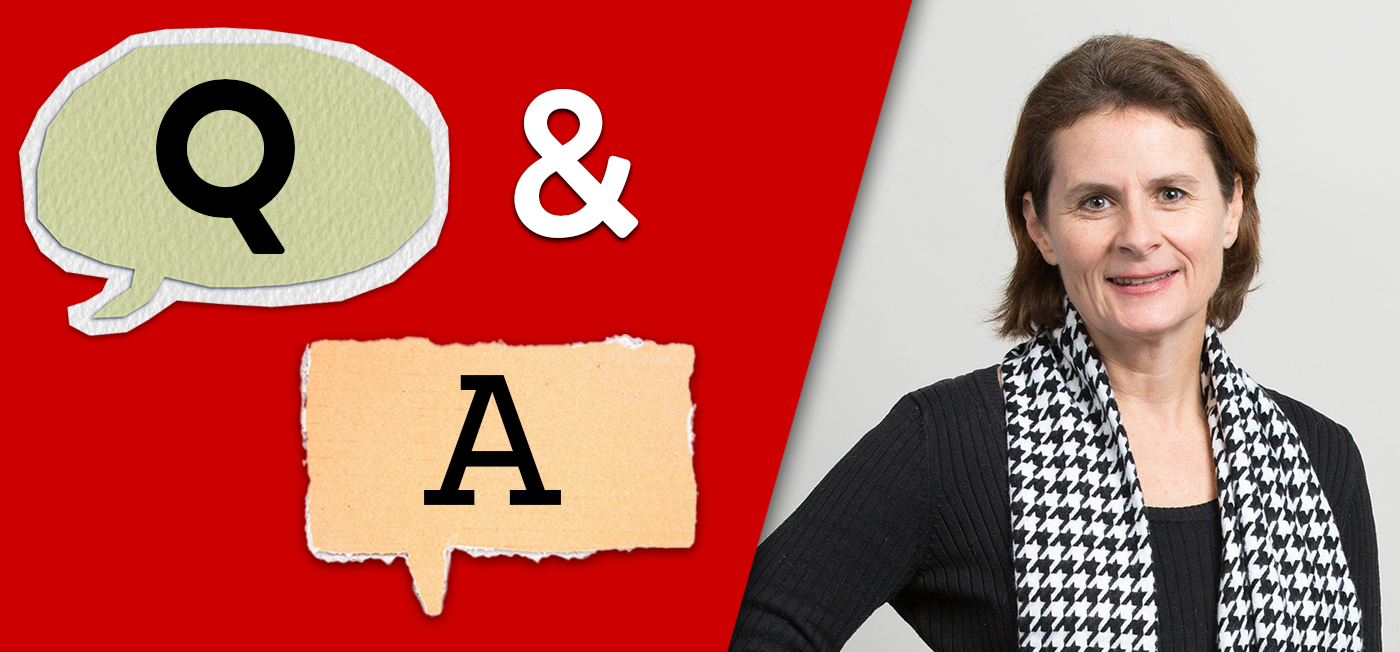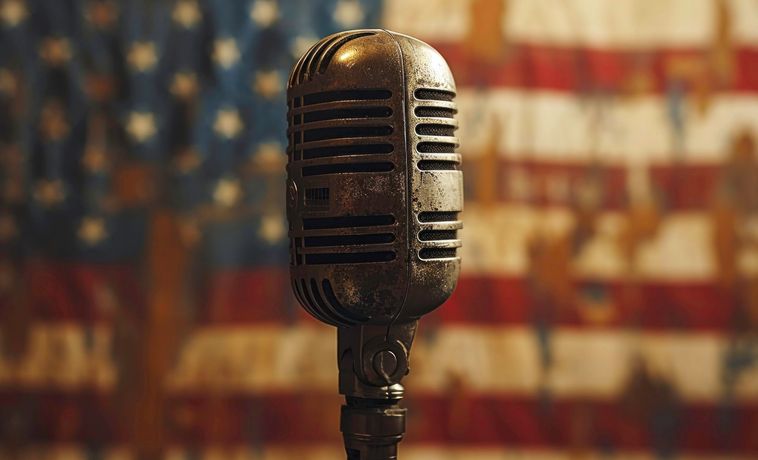The Serious Study of Funny: Q&A with Patrice Oppliger

Patrice Oppliger has studied masculinity in professional wrestling and the sexualization of girls in film and television. But central to her focus on popular culture is a fascination with humor. Her most recent book, The Dark Side of Stand-Up Comedy (Palgrave Macmillan, 2020), which she co-edited with Eric Shouse, explores the paradoxical connections between tragedy and comedy.
Oppliger, an assistant professor of media science, is part of a diverse group of scholars interested in this subject. She recently completed a term as president of the International Society for Humor Studies, and, in July, she will host the organization’s annual conference at BU.
COMtalk spoke with Oppliger about humor studies and how comedy is evolving.
Q&A
With Patrice Oppliger
COMtalk: What drew you to study popular culture and, within that, comedy?
Patrice Oppliger: I grew up in a very homogeneous community, in Columbus, Neb. Television was my companion, and it was also my window into the world. Anything I knew about cities or different religions or races, I learned from television. I’m interested in not only why we enjoy humor, but how we can use humor on an interpersonal level to give bad news or cheer somebody up.
COMtalk: What were you watching as a kid?
Patrice Oppliger: Welcome Back Kotter, Mork and Mindy, and also All in the Family and some of those shows that had a political slant to them. Good Times was my window into Black families. I was picking up clues and an appreciation that there were people different from me out there.
COMtalk: Why study humor?
Patrice Oppliger: People study depression and all sorts of sad things. Studying humor is looking at the enjoyment of life. We also have this history of political satire, from cartoons dating back to the American Revolution. And late night television—Saturday Night Live—has helped to frame the political landscape. I also talk to my students about why situation comedies are so important. Shows like black-ish make really important points in a way that’s nonthreatening, couched in humor.
COMtalk: What’s changed since the sitcoms of your childhood?
Patrice Oppliger: Television influences us by making things normal. When people or groups aren’t represented on television, there’s the subtle notion that they’re not important, that they’re not worth having their story told. With all of these streaming services today, people who are underrepresented are being heard.
COMtalk: Have you seen comedy changing in recent years, as the nation has dealt with the trauma of the pandemic?
Patrice Oppliger: I think that whenever we have a tragedy, we are naturally drawn to humor as a coping mechanism. I just watched a clip from South Park. They did these pandemic specials and made fun of both extremes: They made fun of the vaccine deniers, but also of the people who were cutting in line to get vaccinations. And something I noticed during the pandemic was how playful people were with their masks, putting on animal masks or funny sayings, or the campaign that BU did—“F*ck It Won’t Cut It”—using humor to make a stronger point. I think everything was so dark at the time that people wanted to make something humorous.
COMtalk: Comedians often deal with taboo subjects, and as a result can be accused of vulgarity and indecency, even hate speech. Do you see comedy changing in a world where social media fuels the so-called cancel culture?
Patrice Oppliger: In the past, comedians could go to a club to try out a set. They could be very experimental, pushing the envelope. But everyone has a cell phone now and a recording can go viral. Suddenly, some offhand joke that you were just trying out becomes the defining moment of your entire career, and people are calling for your cancellation. So, social media has definitely changed the landscape, in terms of how comedians operate and how cautious they are. On the other hand, it’s brought up some good discussions. If you think about Dave Chappelle and his interactions with the transgender community, it’s brought up a lot of things that are controversial. Maybe it’s good to get them out, to talk about them, regardless of whether you think he did it in an ethical manner.
COMtalk: It must be a delicate balance for comedians to strike the right tone and be funny without crossing the line—and the line that defines what’s acceptable moves over time, doesn’t it?
Patrice Oppliger: Look at how many people have gotten in trouble for using blackface in the past. So there is a focus on whether we can use today’s standards to look backwards and criticize people. Many jokes don’t age well.
COMtalk: Tell me about the humor studies community and the International Society for Humor Studies.
Patrice Oppliger: There’s a lot of different groups within the society: a philosophy group, linguists who look at joke structure and look at AI to see if computers can create humor, groups who look at literature, people who study media, people who study nurses and doctors using humor to relate to patients… to help alleviate pain relief because of the endorphins that are released when we laugh. Scholars are likely exploring jokes about Ukraine, just as they looked at humor that was created during the Holocaust and in concentration camps, as a way to cope and also to bind people together. There’s just so much under the umbrella of humor.


